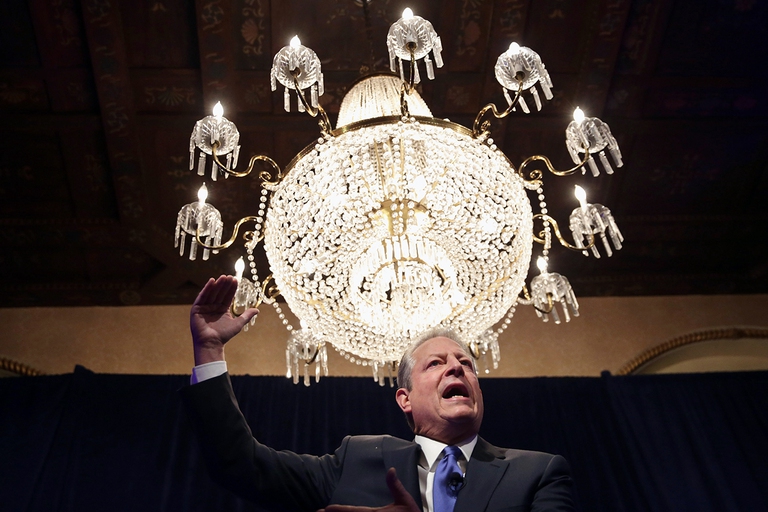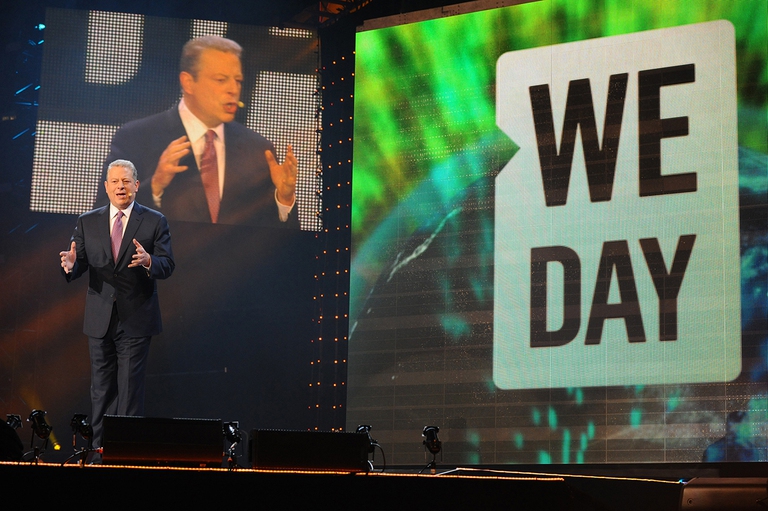
After a landslide led to twelve deaths on the island of Ischia, questions have been raised about the impacts of illegal building, tourism, and climate change.
Who loved An Inconvenient Truth, Davis Guggenheim’s documentary film about climate change that won two Academy Awards in 2007, probably can’t help welcoming with relief the latest “interpretation” of Al Gore, United States Vice President during Bill Clinton’s administration and Nobel Peace Prize, in his latest (the fourth) Ted Talk. Recorded in Vancouver, Canada, in
Who loved An Inconvenient Truth, Davis Guggenheim’s documentary film about climate change that won two Academy Awards in 2007, probably can’t help welcoming with relief the latest “interpretation” of Al Gore, United States Vice President during Bill Clinton’s administration and Nobel Peace Prize, in his latest (the fourth) Ted Talk. Recorded in Vancouver, Canada, in February, Gore bets on optimism, leaving behind the man who used to warn “before it’s too late” and embodying a great statesman who, following the Paris climate change conference, reviews all the good things done. It seems like Gore, as a great leader he is, realised it’s time to inspire the public and encourage people to keep on walking the path towards a sustainable development, far from greenhouse gases.
Al Gore has three questions about climate change and our future. First: Do we have to change? Each day, global-warming pollution traps as much heat energy as would be released by 400,000 Hiroshima-class atomic bombs. This trapped heat is leading to stronger storms and more extreme floods. It’s no coincidence that such energy led the last 14 years to be the hottest in history, with the highest peak in 2015.
Second question: Can we change? The answer is yes, we can. And we’ve already started. This leads to the third question: Will we change? Gore answers with passion. The passion of a man who dedicated the last 20 years of his life to this challenge.
One of the greatest poets of the last century in the US, Wallace Stevens, wrote a line that has stayed with me: “After the final ‘no,’ there comes a ‘yes,’ and on that ‘yes’, the future world depends.” When the abolitionists started their movement, they met with no after no after no. And then came a yes. The Women’s Suffrage and Women’s Rights Movement met endless no’s, until finally, there was a yes. The Civil Rights Movement, the movement against apartheid, and more recently, the movement for gay and lesbian rights here in the United States and elsewhere. After the final “no” comes a “yes.”
When any great moral challenge is ultimately resolved into a binary choice between what is right and what is wrong, the outcome is fore-ordained because of who we are as human beings. Ninety-nine percent of us, that is where we are now and it is why we’re going to win this. We have everything we need. Some still doubt that we have the will to act, but I say the will to act is itself a renewable resource.
(Al Gore, The case for optimism on climate change, Ted talk)
Siamo anche su WhatsApp. Segui il canale ufficiale LifeGate per restare aggiornata, aggiornato sulle ultime notizie e sulle nostre attività.
![]()
Quest'opera è distribuita con Licenza Creative Commons Attribuzione - Non commerciale - Non opere derivate 4.0 Internazionale.
After a landslide led to twelve deaths on the island of Ischia, questions have been raised about the impacts of illegal building, tourism, and climate change.
Not much snow, peaks of 19 degrees Celsius in Norway and even 28 degrees in France: official data confirms the anomalously high temperatures of this past winter.
Ocean warming has risen to record highs over the last five years: just in 2019 the heat released into the world’s oceans was equivalent to that of 5-6 atomic bombs per second. The culprit, no doubt, is climate change.
What did Greta Thunberg tell participants at the 2020 World Economic Forum in Davos? Once again, the Swedish activist underlined the total lack of concrete solutions to the climate crisis presented by leaders so far.
The list of human and animal victims of the Australia wildfires keeps growing – one species might already have gone extinct – as the smoke even reaches South America.
Kivalina is located on a small island once guarded by sea ice, which is now melting due to global warming. While the sea threatens to wipe the village off the face of the Earth, its inhabitants refuse to give up their lives and traditions.
Thanks to activists, the voice of the world’s peoples resounded through the COP25 like an alarm bell. Governments didn’t reach the results they demanded, but their cries and messages were stronger than ever, reaching even those who weren’t in Madrid.
Climate change poses a risk for millions. However, women are the most vulnerable to its negative consequences: a few simple considerations by the Italian Climate Network help us perceive the global implications of this.
The COP25 ended two days late and with very few steps ahead made. Climate negotiations in 2020 will be an uphill battle as political will clearly seems to be lacking, once again.









